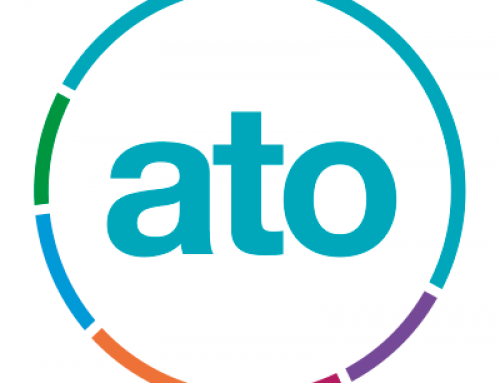Last night, the Treasurer Scott Morrison handed down the 2018-19 Federal Budget.
Here are some of the key Budget Measures announced.
Economic Update
- Estimated Budget Positions
- 2017-18 -$18.2 billion
- 2018-19 -$14.5 billion
- 2019-20 $2.2 billion (surplus)
- GDP
- 2017-18 2.75%
- 2018-19 3.00%
- 2019-20 3.00%
- Unemployment Rate
- 2017-18 5.50%
- 2018-19 5.25%
- 2019-20 5.25%
- CPI (Inflation)
- 2017-18 2.00%
- 2018-19 2.25%
- 2019-20 2.50%
ATO-specific Budget Measures
- The Government will provide $133.7 million to the ATO to continue to deliver on a range of strategies that sustain both an increase in debt collections and an improvement in the timeliness of debt collections. This measure is expected to raise $1.2 billion over the forward estimates period.
- The Government will further expand the Taxable Payments Reporting System (preparation of Taxable Payments Annual Reports) to the following industries:
- Security Providers and Investigation Services
- Road Freight Transport
- Computer System Design and related services
This measure is expected to raise $790 million over the forward estimates period.
- The Government will provide $318.5 million over four years to implement new strategies to combat the “black economy”. The ATO will implement a new and enhanced enforcement strategy that brings together new mobile strike teams and an increased audit presence, a Black Economy Hotline that will allow for the community to report black economy and illegal phoenix activities, improved government data analytics, and education activities.This measure is expected to raise $3.0 billion.
- The Government will provide $130.8 million to the ATO from 1 July 2018 to increase compliance activities targeting individual taxpayers and their tax agents. This measure is estimated to have a gain to revenue of $1.1 billion in fiscal balance terms over the forward estimates period.
- The Government will provide $3.1 million to the ATO over the forward estimates to improve the integrity of the ‘notice of intent’ (NOI) processes for claiming personal superannuation contribution tax deductions. This measure will commence from 1 July 2018 and is estimated to have a gain to revenue of $430.0 million over the forward estimates through increased compliance and collections from business owners and other non-employees.
Individual Income Tax Rate Changes
- Step 1
- The Government will introduce the Low and Middle Income Tax Offset, a non-refundable tax offset of up to $530 per annum to Australian resident low and middle income taxpayers. The offset will be received as a lump sum on assessment after an individual lodges their tax return.The Low and Middle Income Tax Offset will provide a benefit of up to $200 for taxpayers with taxable income of $37,000 or less. Between $37,000 and $48,000, the value of the offset will increase at a rate of three cents per dollar to the maximum benefit of $530. Taxpayers with taxable incomes from $48,000 to $90,000 will be eligible for the maximum benefit of $530. From $90,001 to $125,333, the offset will phase out at a rate of 1.5 cents per dollar. The benefit of the Low and Middle Income Tax Offset is in addition to the existing Low Income Tax Offset.
- Step 2
- From 1 July 2018, the Government will increase the top threshold of the 32.5 per cent personal income tax bracket from $87,000 to $90,000.
- From 1 July 2022, the Government will increase the Low Income Tax Offset from $445 to $645 and extend the 19 per cent personal income tax bracket from $37,000 to $41,000
to lock in the benefits of Step 1. - From 1 July 2022, the Government will further increase the top threshold of the 32.5 per cent personal income tax bracket from $90,000 to $120,000.
- Step 3
- From 1 July 2024, the Government will extend the top threshold of the 32.5 per cent personal income tax bracket from $120,000 to $200,000. Taxpayers will pay the top marginal tax rate of 45 per cent from taxable incomes exceeding $200,000 and the 32.5 per cent tax bracket will apply to taxable incomes of $41,001 to $200,000.
Small Business Budget Measures
- The Government will extend the the $20,000 instant asset write-off — expanding accelerated depreciation for small businesses by a further 12 months to 30 June 2019 for businesses with aggregated annual turnover less than $10 million.Small businesses will be able to immediately deduct purchases of eligible assets costing less than $20,000 first used or installed ready for use by 30 June 2019.
Superannuation Budget Measures
- The Government will introduce an exemption from the work test for voluntary contributions to superannuation, for people aged 65-74 with superannuation balances below $300,000, in the first year that they do not meet the work test requirements.
- From 1 July 2019, the Government will introduce a three per cent annual cap on passive fees charged by superannuation funds on accounts with balances below $6,000 and will ban exit fees on all superannuation accounts.
- From 1 July 2019, the Government will also strengthen the ATO-led consolidation regime by requiring the transfer of all inactive superannuation accounts where the balances are below $6,000 to the ATO. The ATO will expand its data matching processes to proactively reunite these inactive superannuation accounts with the member’s active account, where possible.
- Insurance within superannuation will move from a default
framework to be offered on an opt-in basis for: members with low balances of less than $6,000; members under the age of 25 years; and members whose accounts have not received a contribution in 13 months and are inactive. The changes will take effect on 1 July 2019 — affected superannuants will have a period of 14 months to decide whether they will opt-in to their existing cover or allow it to switch off. - The Government will increase the maximum number of allowable members in new and existing self-managed superannuation funds and small APRA funds from four to six, from 1 July 2019. This will provide greater flexibility for joint management of retirement savings, in particular for large families.
- From 1 July 2019, the Government will change the annual audit requirement to a three-yearly requirement for self-managed superannuation funds (SMSFs) with a history of good record-keeping and compliance. This measure will reduce red tape for SMSF trustees that have a history of three consecutive years of clear audit reports and that have lodged the fund’s annual returns in a timely manner.
Other Taxation Measures
- The Government will amend the research and development (R&D) tax incentive to better target the program and improve its integrity and fiscal affordability in response to the recommendations of the 2016 Review of the R&D Tax Incentive. The changes will apply for income years starting on or after 1 July 2018.
- From 1 July 2019, businesses will no longer be able to claim deductions for payments to their employees such as wages where they have not withheld any amount of PAYG from these payments, despite the PAYG withholding requirements applying. The Government will also remove deductions for payments made by businesses to contractors where the contractor does not provide an ABN and the business does not withhold any amount of PAYG despite the withholding requirements applying.
- The Government will extend the GST by ensuring that offshore sellers of hotel accommodation in Australia calculate their GST turnover in the same way as local sellers from 1 July 2019.
- The Government will increase the Medicare levy low-income thresholds for singles, families, and seniors and pensioners from the 2017-18 income year. The increases take account of recent movements in the CPI so that low-income taxpayers generally
continue to be exempted from paying the Medicare levy. - The Government will not increase the Medicare levy rate from 2.0 to 2.5 per cent of taxable income from 1 July 2019. Consequential changes to other tax rates that are linked to the top personal tax rate, such as the fringe benefits tax rate, will also not proceed.
- The Government will reform the corporations and tax laws and provide the regulators with additional tools to assist them to deter and disrupt illegal phoenix activity.
- The Government will remove luxury car tax on cars re-imported into Australia, following a refurbishment overseas, from 1 January 2019.
- The Government will deny deductions for expenses associated with holding vacant land. It will also reduce tax incentives for land banking, which deny the use of land for housing or other development. This measure will take effect from 1 July 2019.Denied deductions will not be able to be carried forward for use in later income years. Expenses for which deductions will be denied that would ordinarily be a cost base element (such as borrowing expenses and council rates) may be included in the cost base of the asset for capital gains tax (CGT) purposes when sold. However, denied deductions for expenses that would not ordinarily be a cost base element would not be able to be included in the cost base of the asset for CGT purposes.
Other Budget Measures
- The Government will introduce a limit of $10 000 for cash payments made to businesses for goods and services from 1 July 2019.
For more information about Budget 2018-19, or how the proposed measures impact on you and your business, contact the Cooper & Associates team.






Leave A Comment
You must be logged in to post a comment.